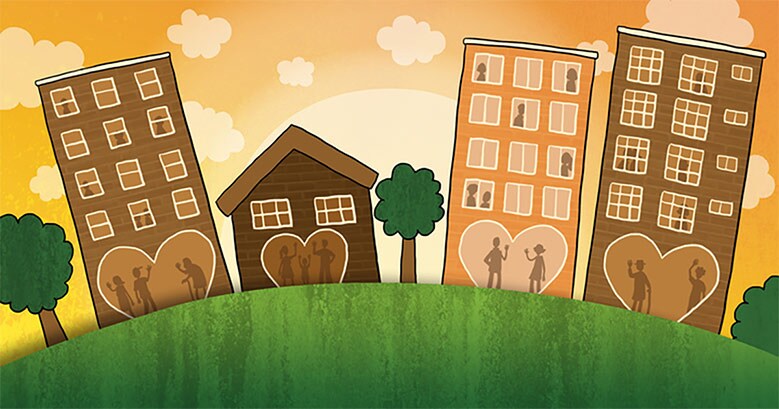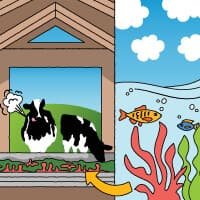
By now, the entire world has been rocked by the effects of the coronavirus crisis. This isn’t easy on anyone, no matter who you are or where you live.
But for refugees — that is, anyone who’s had to leave their home to search for safety, no matter their official status — the stakes are even higher. Right now, there are more than 70 million forcibly displaced people in the world. As newcomers seeking a safe new place to call home, refugees’ support systems are already frayed, and they don’t have the same legal or social safety nets in place. A global pandemic just makes everything harder.
Ben & Jerry’s stands in solidarity with refugees. They’re our neighbours, our friends, and our family. And they’re facing some pretty substantial challenges right now.
-
1. Crowded Housing and Unsanitary Living Conditions
If you’re a refugee living through a global pandemic, that may mean living in very close quarters with others seeking asylum, being forced to share beds with symptomatic strangers, or even sleeping rough on city streets. We’re all trying to stay 2 metres apart right now, but for people living in densely populated refugee camps, that’s simply not possible.
-
2. Limited Access to Healthcare (or Fear of Accessing it)
Because many forcibly displaced people are still in the process of seeking asylum, they’re often hesitant to seek out medical help for fear of landing in immigration detention. And some refugees face additional barriers to healthcare, such as transportation, lack of information, money, language, or fear of “hostile environment” policies.
-
3. Feeling Far from Loved Ones
Forcibly displaced people don’t choose to leave their homes. They’re forced to. And they usually can’t take all of the people they love with them. Social isolation and loneliness is affecting people worldwide. But imagine what it would feel like to live through this in a country that’s not your own, where you might not speak the language, have a home WiFi connection, or even have the resources to top up your phone to call home.
-
4. No Income = Limited Money for Food
Many people seeking safety either aren’t allowed to work, or face barriers to employment due to language, legal restrictions, or discrimination. Yet, government support is often woefully adequate (in the UK, it’s less than £5.39 per day ). You can’t stock up on two weeks’ worth of food on that budget, so weekly (at least) shopping trips are required. And when the shelves are bare due to panic buying and shopping around for cheaper food is impossible due to stay-at-home orders, that means many refugees are barely getting enough to eat.
-
5. Government Delays
A person seeking asylum is forced to wait until the government reviews their case — but most governments have either suspended or delayed the processing of asylum claims and statelessness applications. The longer the delay, the more desperate the situation becomes — and the longer the backlog will be after operations resume.
How This Plays Out in the UK
Here in the UK, the Home Office calls the shots — which means it also has the power to improve refugees’ lives. Groups like Refugee Action have been calling on the government to protect and support people seeking asylum and refugees at risk during this pandemic — and are urgently asking the Home Office to increase support payments by £20 per week.
The Home Office has responded by making some positive changes. But it’s not enough. We need to provide safe housing, financial support, access to support networks, and help facilitate access to healthcare — all while leaning on the government to move quickly and efficiently through the official processes to help people seeking safety feel safe and protected.
Cone Together and Stand with Refugees
COVID-19 has proved that we’re all in this together. If one person gets sick, we’re all at risk of getting sick — but if we all work together, then we can contain the spread of this virus. There are bright spots, and standing arm-in-[virtual] arm to help our new friends and neighbours will do nothing but make them brighter. Stand with us.


